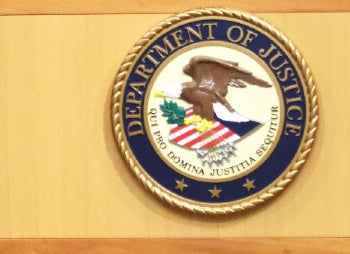Justice Department seeks to protect elderly from fraud
Published 3:09 pm Tuesday, October 11, 2022
|
Getting your Trinity Audio player ready...
|
STAFF REPORT
The U.S. Department of Justice has announced the results of its efforts during the past year to protect older adults from fraud and exploitation. During the past year, the department and its law enforcement partners tackled matters that ranged from mass-marketing scams that impacted thousands of victims to bad actors scamming their neighbors. Substantial efforts were also made over the last year to return money to fraud victims. The Justice Department also announced it is expanding its Transnational Elder Fraud Strike Force to amplify efforts to combat scams originating overseas.
“We are intensifying our efforts nationwide to protect older adults, including by more than tripling the number of U.S. Attorneys’ offices participating in our Transnational Elder Fraud Strike Force dedicated to disrupting, dismantling and prosecuting foreign-based fraud schemes that target American seniors,” said U.S. Attorney General Merrick Garland. “This expansion builds on the Justice Department’s existing work to hold accountable those who steal funds from older adults by returning those funds to the victims where possible.”
U.S. Attorney Francis M. Hamilton III spoke of the program.
“We are committed to holding individuals accountable for criminally targeting older adult victims through fraudulent schemes. As with all successful law enforcement initiatives, our collaboration with our local, state, and federal partners is essential to protecting our community’s older adults against scams.”
During the period from September 2021 to September 2022, Department personnel and its law enforcement partners pursued approximately 260 cases involving more than 600 defendants, both bringing new cases and advancing those previously charged.
On April 6, 2022, in the Eastern District of Tennessee, a federal grand jury returned an indictment charging five Jamaican nationals with conspiracy to commit mail fraud, in violation of 18 U.S.C. § 1349, in case number 3:22-CR-33. According to the indictment, the scheme involved contacting an elderly individual by mail and informing her that she had won more than $3 million through the Golden Casket International Sweepstakes. In subsequent phone calls, the victim was directed to make a series of payments to cover purported taxes and fees associated with her winnings. Prior to the defendants’ apprehension, more than $600,000 had been taken from the victim.
The trial of the five defendants is scheduled to begin on Jan. 10 before the Honorable Judge Thomas A. Varlan, in Knoxville. The lead investigating agencies are the U.S. Postal Inspection Service, the Department of Homeland Security and the Lenoir City Police Department.
The Department also highlighted three other efforts: expansion of the Transnational Elder Fraud Task Force, success in returning money to victims and efforts to combat grandparent scams.
The Department announced that as part of its continuing efforts to protect older adults and bring perpetrators of fraud schemes to justice, it is expanding the Transnational Elder Fraud Strike Force, adding 14 new U.S. Attorney’s Offices. Expansion of the Strike Force will help to coordinate the Department’s ongoing efforts to combat largest and most harmful fraud schemes that target or disproportionately impact older adults.
In the past year, the Department has notified over 550,000 people that they may be eligible for remission payments. Notifications were made to consumers whose information was sold by one of three data companies prosecuted by the Department and were later victims of “sweepstakes” or “astrology” solicitations that falsely promised prizes or individualized services in return for a fee. More than 150,000 of those victims cashed checks totaling $52 million, and thousands more are eligible to receive checks. Also notified were consumers who paid fraudsters perpetrating person-in-need scams and job scams via Western Union. In the past year, the Department has identified and contacted over 300,000 consumers who may be eligible for remission. Since March 2020 more than 148,000 victims have received more than $366 million as a result of a 2017 criminal resolution with Western Union for the company’s willful failure to maintain an effective anti-money laundering program and it’s aiding and abetting of wire fraud.
Over the past year, the Department pursued cases against the perpetrators of “grandparent scams,” otherwise known as “person-in-need scams.” These scams typically begin when a fraudster, often based overseas, contacts an older adult and poses as a grandchild, other family member or someone calling on behalf of a family member. Call recipients are told that their family member is in jeopardy and is urgently in need of money. When recently sentencing one of eight perpetrators of a grandparent scam indicted under the Racketeer Influenced and Corrupt Organizations Act, a federal judge described such scams “heartbreakingly evil.” The Department is working with government partners and others to raise awareness about these schemes.
Reporting from consumers about fraud and fraud attempts is critical to law enforcements efforts to investigate and prosecute schemes targeting older adults. If you or someone you know is age 60 or older and has been a victim of financial fraud, help is available through the National Elder Fraud Hotline by calling; 1-833-FRAUD-11 or (833) 372-8311. This Department of Justice Hotline, managed by the Office for Victims of Crime, is staffed by experienced professionals who provide personalized support to callers by assessing the needs of the victim and identifying next steps.
Case managers will identify appropriate reporting agencies, provide information to callers to assist them in reporting or connect them with agencies, and provide resources and referrals on a case-by-case basis. The hotline is staffed seven days a week, from 6 a.m. to 11 p.m. [ET].
English, Spanish and other languages are available. More information about the Department’s elder justice efforts can be found on the Department’s Elder Justice website at: www.elderjustice.gov.
Some of the cases that comprise this announcement are charges, which are merely allegations, and the defendants are presumed innocent unless and until proven guilty beyond a reasonable doubt in a court of law.






